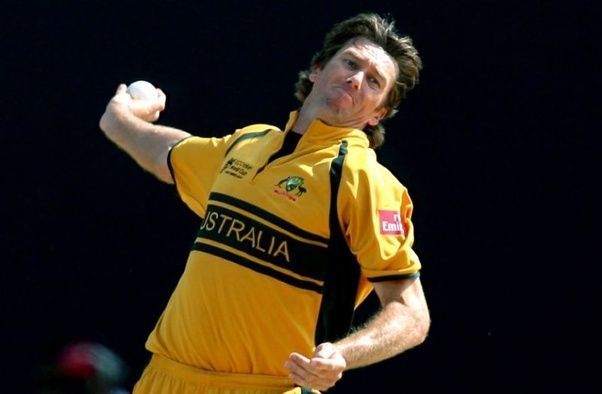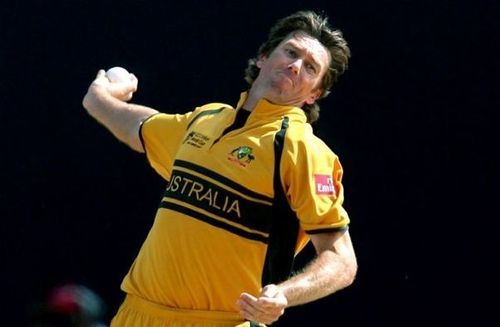
SK Flashback: McGrath propels Australia into the World Cup 1999 Super-Six
The situation in 1999 was somewhat similar to what it is now twenty years hence. There was no clear favourite. It is this tournament that began Australia’s dominance through sheer grit, resilience, skill, and not inconsiderable luck.

Glenn McGrath had had a surprisingly indifferent World Cup 1999 thus far. Australia too had struggled, losing two of the league matches. It was now essential to beat the West Indies in order to qualify for the super-six stage. It is at times such as this that champions rise to the occasion and pull off some magic. Richie Richardson had done it when the two teams clashed in their last league match at Jaipur in 1996. Shane Warne did it when they met again ten days later in the semi-final at Mohali. It was to be McGrath this time.
The seaming track at Old Trafford was just right for McGrath to play a lead role. As the West Indies openers struggled to come to terms with the sideways movement, it was just a matter of time before McGrath struck. He did in the fifth over, and with deadly effect. He got Sherwin Campbell to edge to the right of Mark Waugh who dived and held a superb catch with both hands. Campbell went for two, and the West Indies were 7 for one in 4.2 overs. The very next ball, Jimmy Adams offered no stroke, hiding his bat behind the front pad. He was adjudged leg-before-wicket. As so often in the past, McGrath’s wicket-to-wicket bowling had paid dividends. Brian Lara averted a hat-trick.
A great bowler is invariably fired up when he has a world class batsman opposite him. Only a month earlier Lara had played some astonishing innings at home against the Australians. But conditions were quite different here. McGrath struck a stunning blow. Lara presented a dead defensive bat to a delivery that deviated just a fraction off the seam, and the ball hit the top of the off-stump. Lara was gone for 9, and the West Indies were 20 for three off 8.2 overs.
They never recovered from these setbacks even though wicketkeeper-opening batsman Ridley Jacobs fought a lone battle. There was some resistance when Shivnarine Chanderpaul helped Jacobs add 44 for the fourth wicket, but it was a downhill slide thereafter. When McGrath returned to the bowling crease, there was only the tail to knock off. He trapped Mervyn Dillon leg-before for a duck. He was then confronted by a batsman in McGrath’s own class - Courtney Walsh - who had hung around for some time and had even hit a boundary. McGrath castled him to bowl out the West Indies for 110. Ridley Jacobs carried his bat with an unbeaten 49.
McGrath finished with five for 14, the best figures in the tournament. He had struck just when it mattered. These were the fourth-best figures ever in the World Cup bettered till then only by Winston Davis, Gary Gilmour, and Ken Macleay. If you add Alan Hurst, the next best, there were four Australians in the top five until 1999. In the next World Cup in 2003, McGrath went on to capture seven for 15 against Namibia, still the best in the premier tournament. Back to this match, it was a simple target for the batsmen and Australia sauntered into the super-six stage.
McGrath struck form at the right time and went on to play a crucial role later in the tournament as well. A tricky bowler to counter at the best of times, he was virtually unplayable when conditions suited him. He bowled a testing line around the off-stump, delivering from as close to the stumps as anyone has ever done. Often the batsman did not know whether the ball was coming in or going away. Glenn McGrath had them all thinking.
West Indies: 110 all out (46.4 overs), Australia: 111 for 4 wickets (40.4 overs) (CWC 1999)
Follow Sportskeeda for all the updates on Cricket World Cup 2019, schedule, news, points table, live score, most runs, most wickets and fantasy tips.